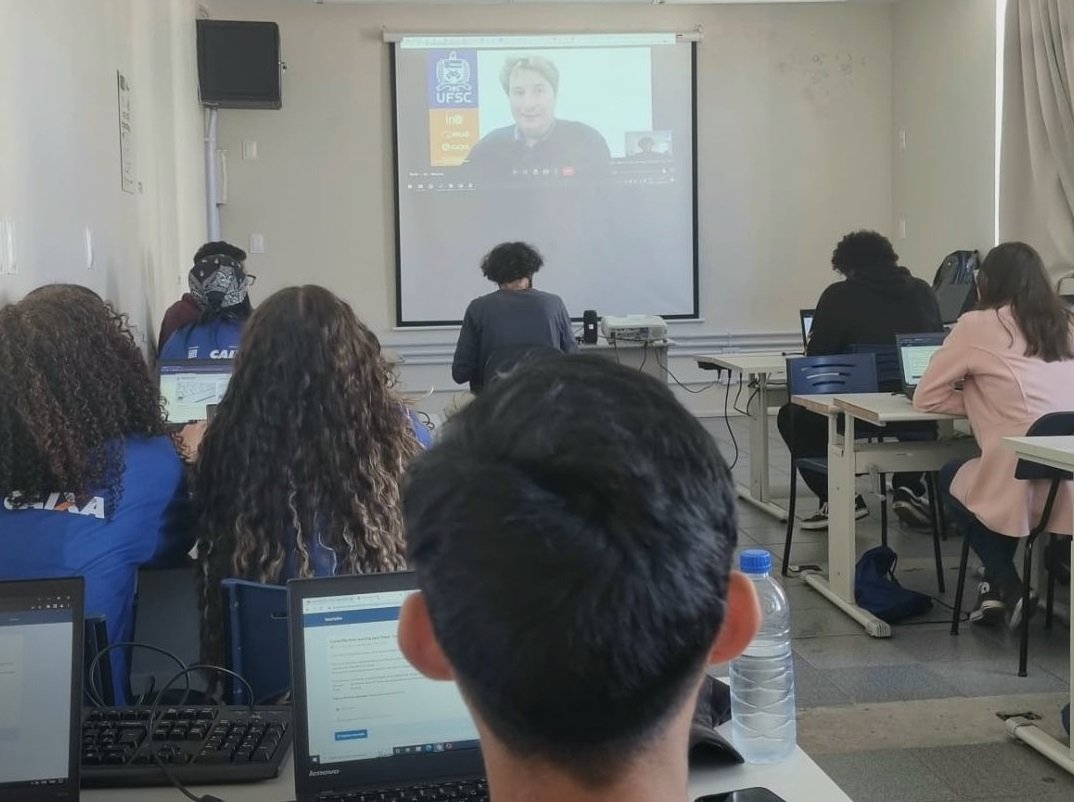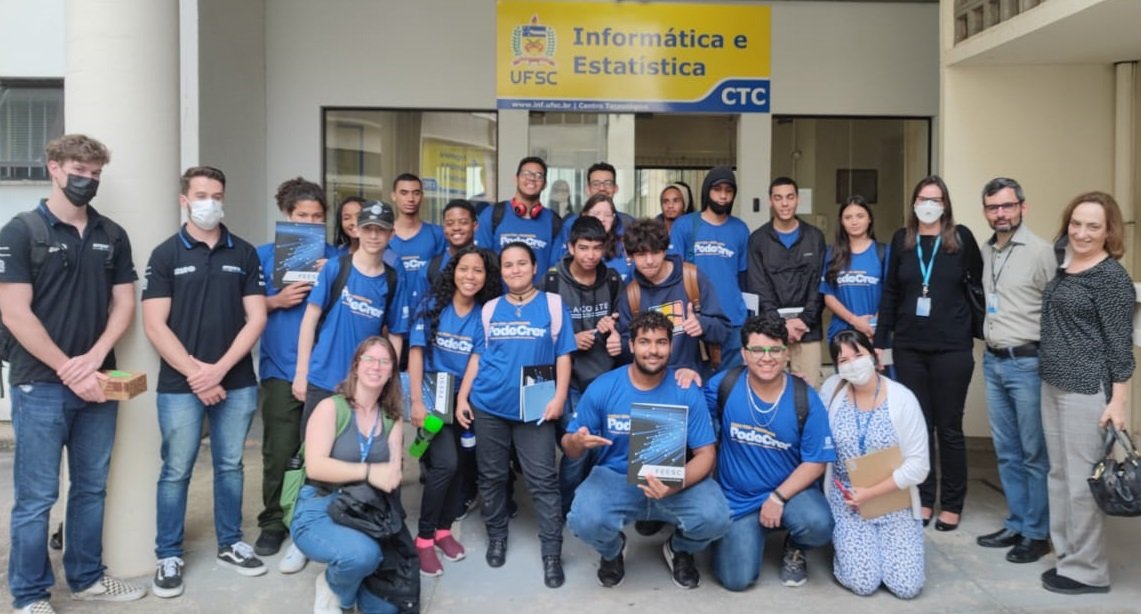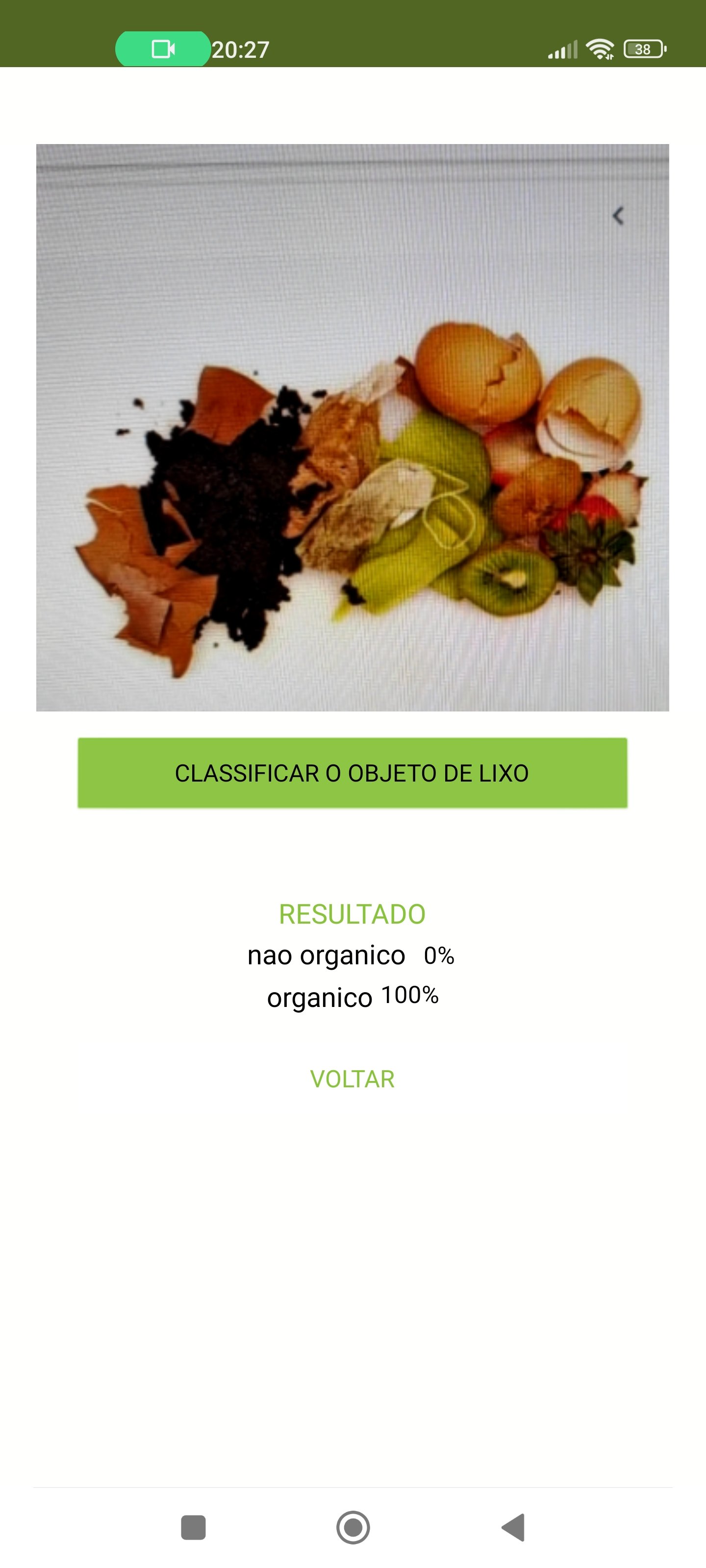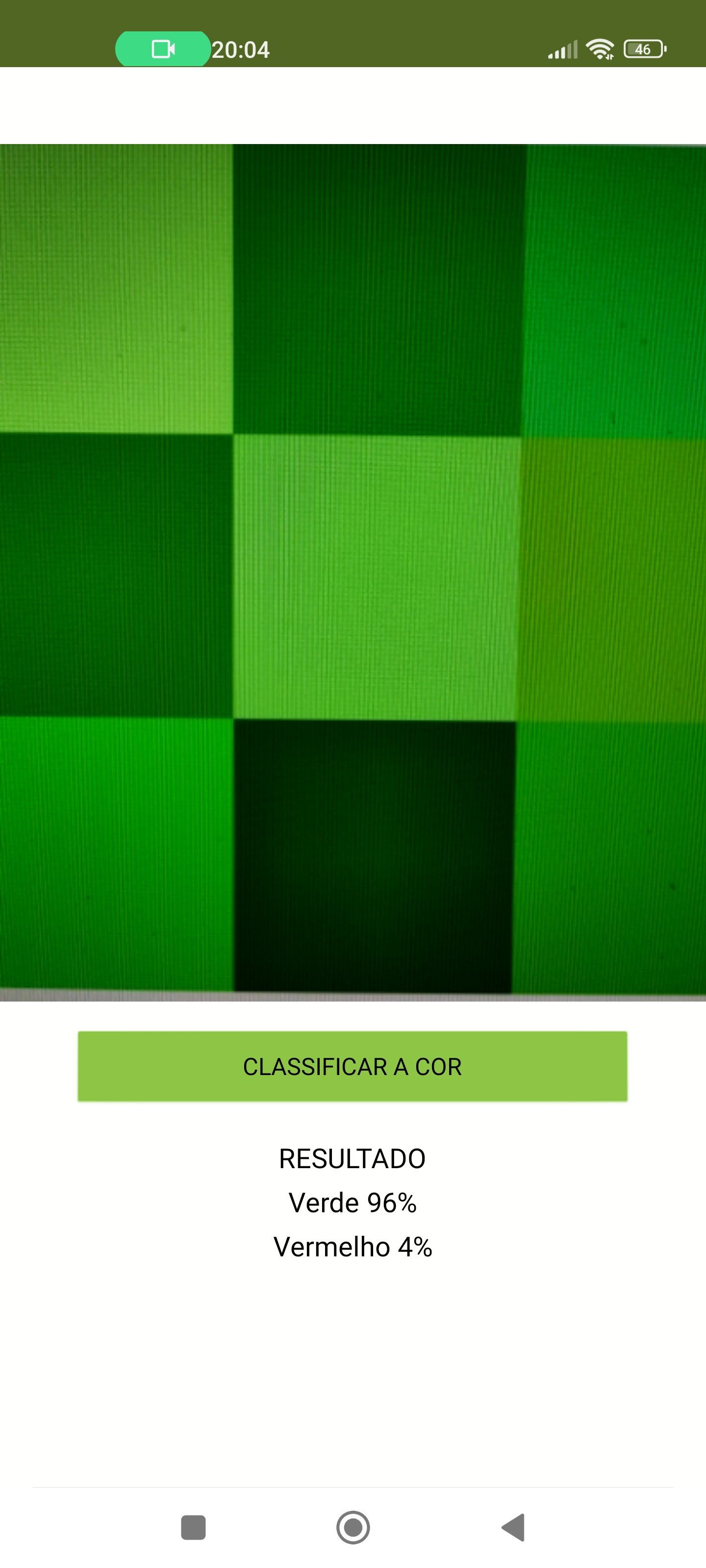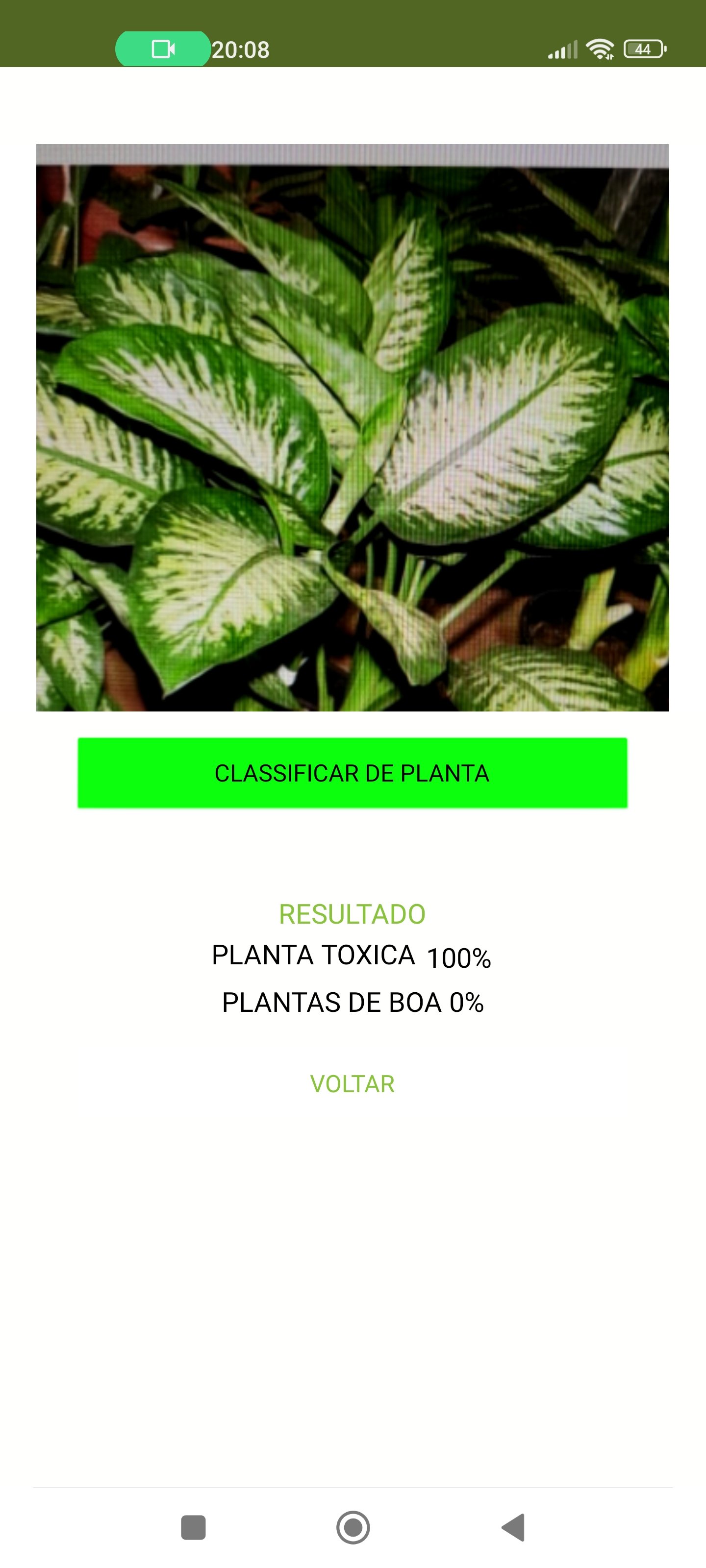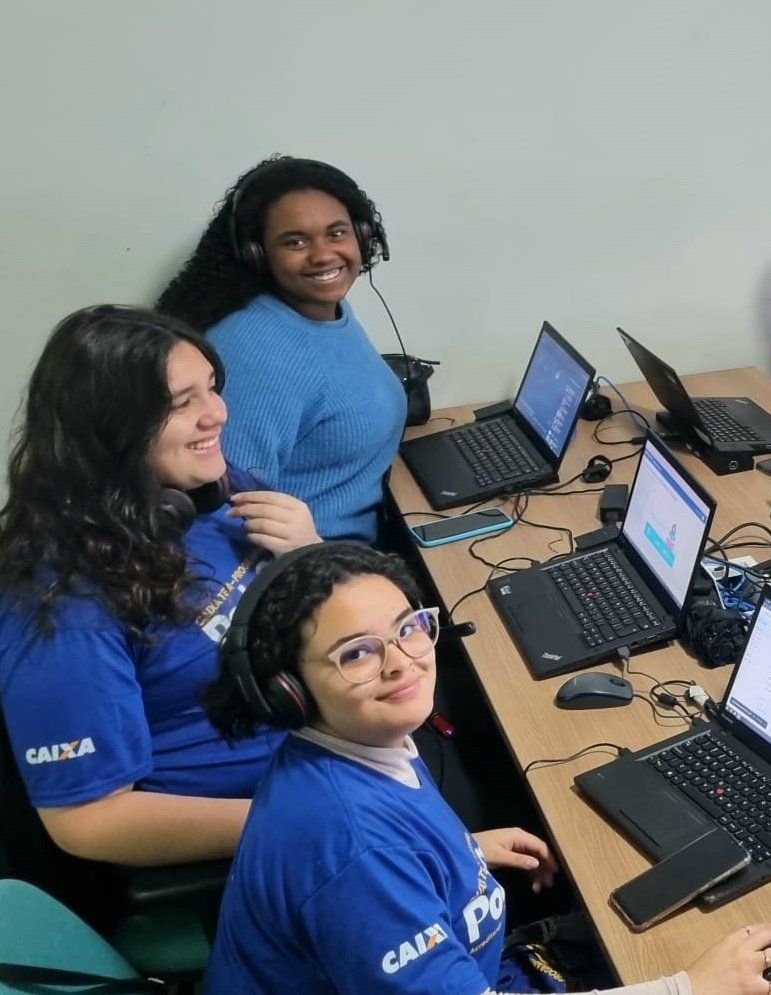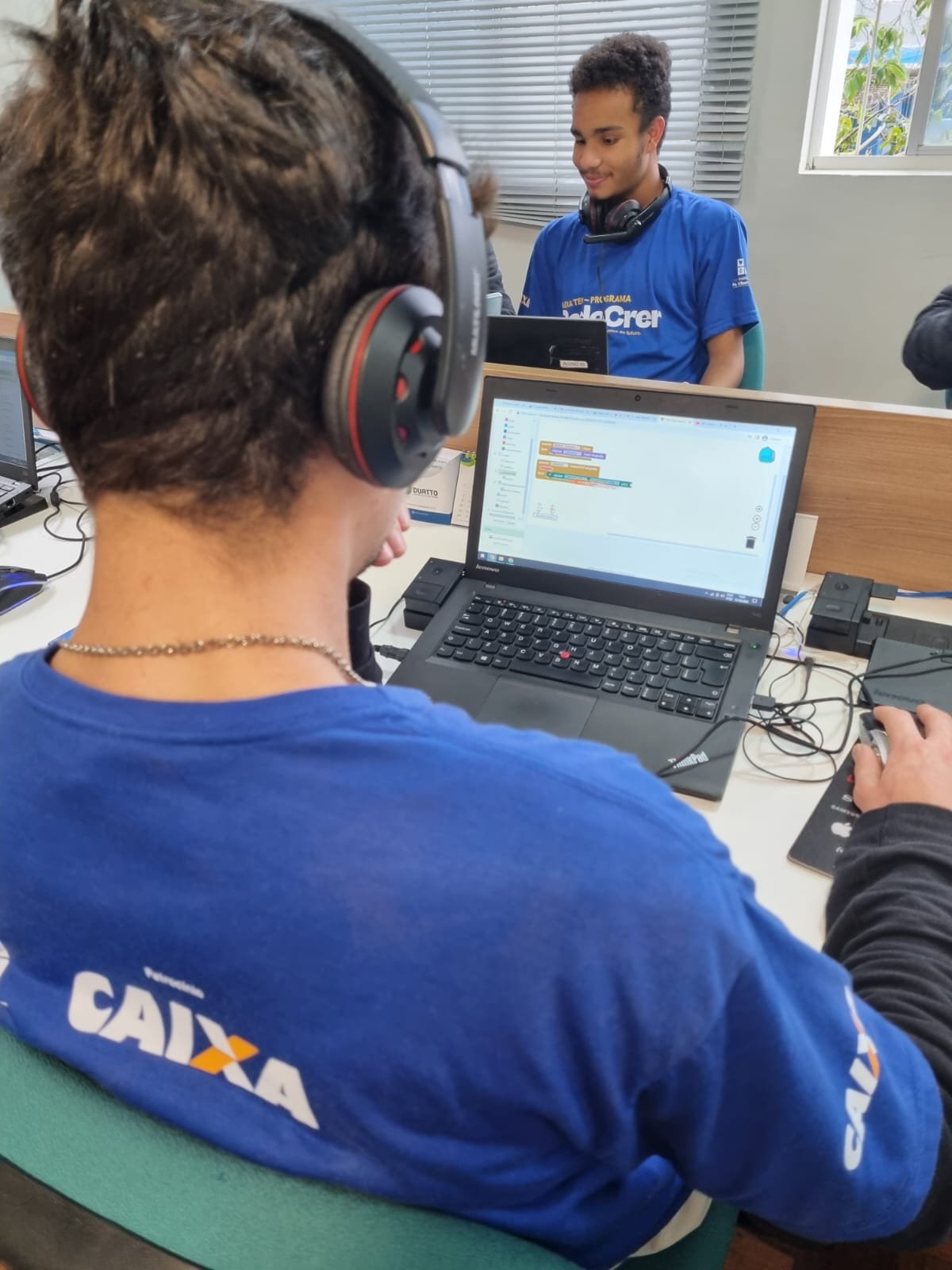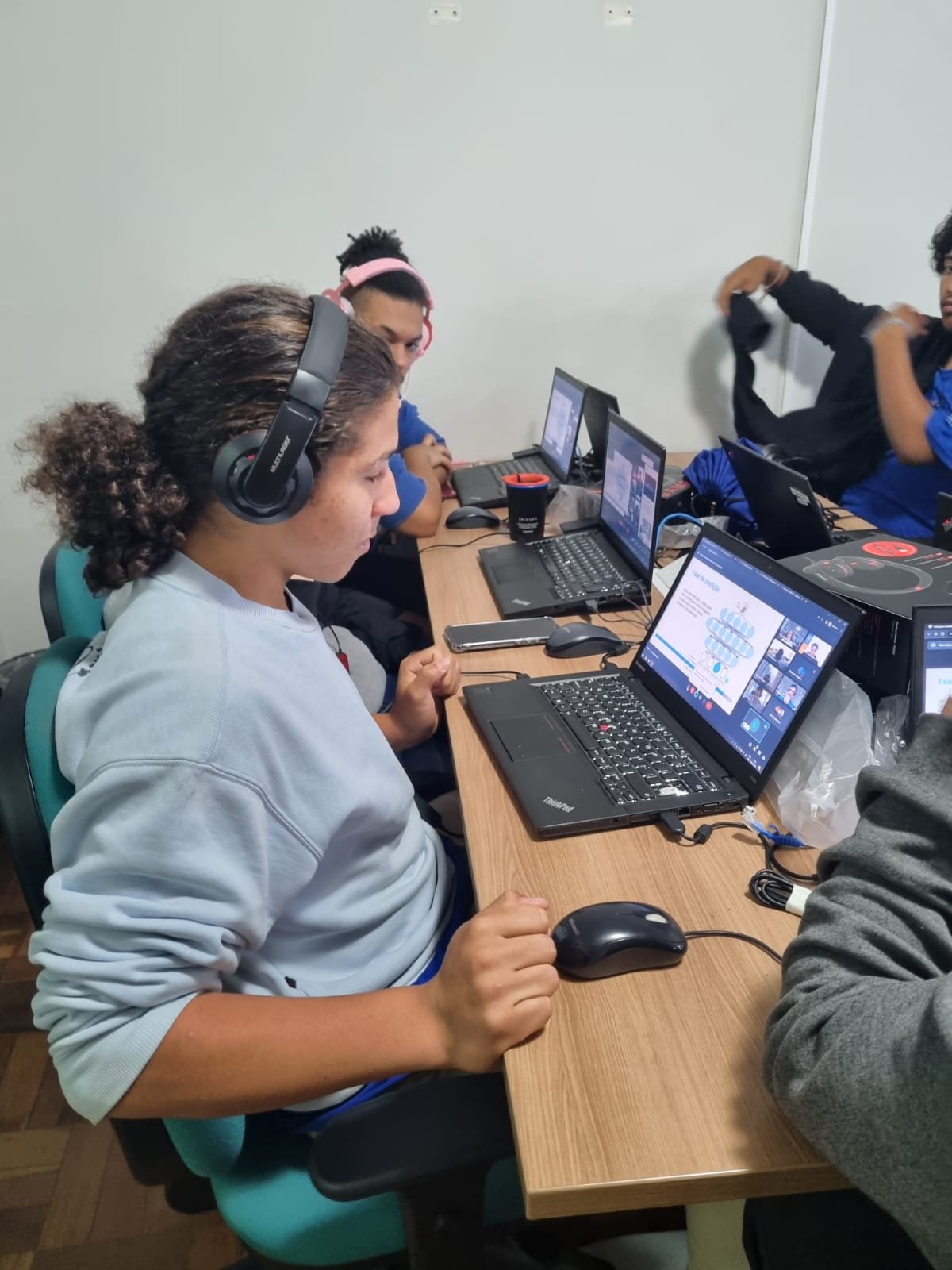Underserved Youth in Brazil Develop Intelligent Mobile Apps
“Before Pode Crer, I saw technology as something just for fun. But after starting the course, I realized that it could be my professional career, my future.”
Three girls participate in Pode Crer, a free educational program for low-income youth aged 11 to 24.
From September to December 2022, over 175 Brazilian students were introduced to the world of artificial intelligence through the Pode Crer program at Vilson Groh Institute. Based in the greater Florianópolis region in the south of Brazil, Pode Crer is a free educational program that teaches courses on technology, citizenship, and community to low-income youth aged 11 to 24. As part of technology courses of this program, students created their own machine learning models, discussed the impact of ethical issues, and strengthened their active participation in a world increasingly influenced by artificial intelligence.
Using MIT App Inventor to develop intelligent mobile applications, students came up with creative solutions to address problems in their community. Some of the mobile apps used image recognition to classify organic waste, toxic plants, and colors for colorblind people. “I recovered an old dream of mine to study technology,” said Ágata Cavalheiro, one of the students in the program. “The project stimulated my creativity.”
“I recovered an old dream of mine to study technology. The project stimulated my creativity.”
Students also had the opportunity to visit the Informatics and Statistics Department at the Federal University of Santa Catarina. During the visit, they learned about undergraduate computing courses, machine learning research, and an autonomous racecar project called Ampera Racing.
By the end of the program, students were critically discussing the impact of artificial intelligence on their reality. It was impressive that they achieved this level of interest and dedication in such a short period of time. The experience demonstrated the importance of innovative education technology programs like Pode Crer, which are preparing students to actively engage with artificial intelligence and pursue careers in a field abundant with opportunities. Seventeen-year-old Jackson Antonio Ribeiro reflected, “Before Pode Crer, I saw technology as something just for fun. But after starting the course, I realized that it could be my professional career, my future.”
